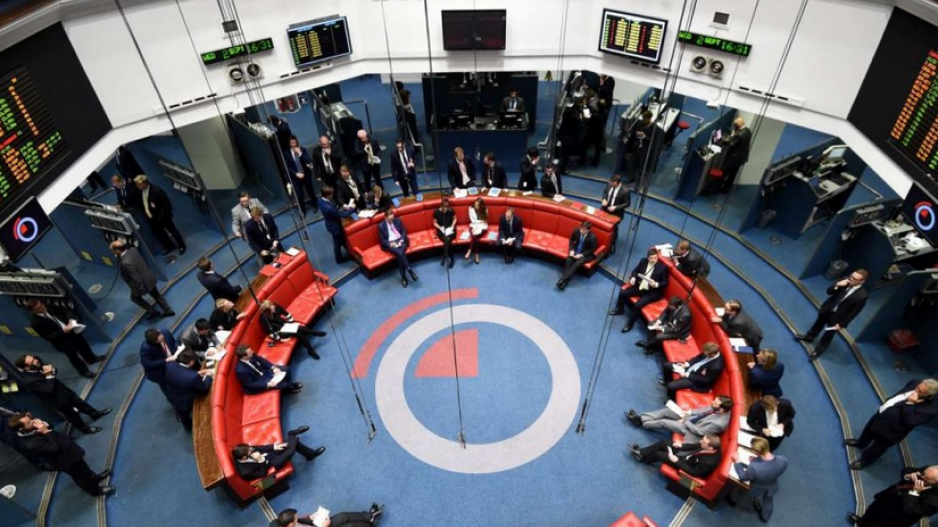The London Metal Exchange has invested over £1 million (HK$9.58 million) in technology to upgrade its famous open outcry trading floor, as a growing number of Chinese members boosts the bourse’s future prospects.
Peter Childs, head of trading operations and price discovery at LME, said six Chinese companies had joined since the LME was purchased by Hong Kong Exchanges and Clearing in 2012.
“The new trend in recent years has been Chinese banks and brokers joining as members,” Childs told the South China Morning Post in an interview at the London Metal Exchange.
We believe there may be more Chinese companies interested in becoming members in the future
Peter Childs, London Metal Exchange
“The acquisition has allowed the LME to have a footprint in Asia while the HKEX now has a footprint in commodities trading. We have seen more Chinese investors and banks interested to trade and to become members of the LME since the HKEX acquisition.
“Chinese firms are an important growing force for the LME and we believe there may be more Chinese companies interested in becoming members in the future.”
He said two of the Chinese companies - GF Financial Markets UK and CCBI Metdist Global Commodities - are Category 1 members, meaning they can trade in the Ring, as well as by telephone and electronically. They are among nine members who use open outcry to trade on the LME’s famous Ring trading floor.
The other Chinese members - OCI Global Commodities UK, China Merchants Securities UK, ICBC Standard Bank, ASB Group Asia Investment, and Lee Kee Group - are not permitted to trade in the Ring, but are entitled to buy and sell by telephone or using the electronic trading system.
Childs said although a majority of trade was now done by telephone or electronic trading systems, the LME has nonetheless spent £1 million on technology to enhance the new Ring trading hall located at Finsbury Square, which came into use in February this year.
“The £1 million investment in the technology in the Ring helps increase information and trading efficiency. The nine Ring members have their booths and dealing offices at the new trading hall, and they’re very happy with the services,” he said.
The future success of the LME will depend on how it connects with China’s commodity markets and on the range of products it offers
Edmond Chan, PwC Hong Kong
The number of members trading at the Ring has declined from 30 in the 1980s to nine today. US bank JP Morgan quit open-outcry trading on the London Metal Exchange in September last year after cutting back on its commodity business, a move that serves to illustrate the increasing importance of electronic dealing in metals.
The LME is the only exchange in Europe to still use the open-outcry practice where traders use hand signals and shout out prices during intense trading in a number of metals including copper, aluminium, zinc, lead, nickel and zinc.
Childs said that although the majority of the LME’s trading volume is now done by telephone and via the electronic system, the Ring continues to be important.
“The Ring trading is to set the reference prices of the metals, which are trusted by everyone.The electronic platform can only handle simple trading strategy, but for the complex spread-trading strategy, it would preference to be done at the Ring,” he said.
The Ring trades for four hours a day, compared with the electronic trading system that trades 18 hours a day and the 24-hour telephone system.
“These three trading systems allow customers to choose the method suitable for them. It provides more choice for the customers,” said Childs.
Edmond Chan, co-head of capital markets services at PwC Hong Kong, said that since its acquisition by Hong Kong Exchanges and Clearing (HKEX) in 2012, China’s market awareness of the LME has increased and there has been a rise in the number of Chinese customers and transaction volumes.
“We expect to see more participation from Chinese players followed by continuing investor education and promotion in the longer term. The future success of the LME will also depend on how it connects with China’s commodity markets and on the range of products it offers,” Chan said.
HKEX is keen to expand commodities trading as it wants to diversity its business and to cut down its reliance on stocks. The exchange operator bought LME for £1.38 billion as a route into metal trading. HKEX next year plans to introduce a metals trading platform in Qianhai, the new free-trade zone near Hong Kong. It will focus on the spot market and serve the real economy by realising physical delivery of commodities, according to chief executive Charles Li Xiaojia.
Clara Chan, chief executive of metal trading firm Lee Kee Group, a member of LME, said many end users of metals like to trade at LME because of its deep liquidity.
“Most importantly, many of our clients are manufacturers that need the physical delivery of the metal for their production. The LME can offer the physical delivery function,” she said.




